- Home
- J. R. R. Tolkien
Unfinished Tales Page 17
Unfinished Tales Read online
Page 17
Then great was Mablung’s grief and bewilderment; but no other choice had he but to lead Nienor so upon the long eastward way, without help or company. Thus they passed away, walking like dreamers, out into the night-shadowed plain. And when morning returned Nienor stumbled and fell, and lay still; and Mablung sat beside her in despair.
‘Not for nothing did I dread this errand,’ he said. ‘For it will be my last, it seems. With this unlucky child of Men I shall perish in the wilderness, and my name shall be held in scorn in Doriath: if any tidings indeed are ever heard of our fate. All else doubtless are slain, and she alone spared, but not in mercy.’
Thus they were found by three of the company that had fled from Narog at the coming of Glaurung, and after much wandering when the mist had passed went back to the hill; and finding it empty they had begun to seek their way home. Hope then returned to Mablung; and they went on now together steering northward and eastward, for there was no road back into Doriath in the south, and since the fall of Nargothrond the ferry-wards were forbidden to set any across save those that came from within.
Slow was their journey, as for those that lead a weary child. But ever as they passed further from Nargothrond and drew nearer to Doriath, so little by little strength returned to Nienor, and she would walk hour by hour obediently, led by the hand. Yet her wide eyes saw nothing, and her ears heard no words, and her lips spoke no words.
And now at length after many days they came nigh to the west border of Doriath, somewhat south of Teiglin; for they intended to pass the fences of the little land of Thingol beyond Sirion and so come to the guarded bridge near the inflowing of Esgalduin. There a while they halted; and they laid Nienor on a couch of grass, and she closed her eyes as she had not yet done, and it seemed that she slept. Then the Elves rested also, and for very weariness were unheedful. Thus they were assailed at unawares by a band of Orc-hunters, such as now roamed much in that region, as nigh to the fences of Doriath as they dared to go. In the midst of the affray suddenly Nienor leapt up from her couch, as one waking out of sleep to an alarm by night, and with a cry she sped away into the forest. Then the Orcs turned and gave chase, and the Elves after them. But a strange change came upon Nienor and now she outran them all, flying like a deer among the trees with her hair streaming in the wind of her speed. The Orcs indeed Mablung and his companions swiftly overtook and they slew them one and all, and hastened on. But by then Nienor had passed away like a wraith; and neither sight nor slot of her could they find, though they hunted for many days.
Then at last Mablung returned to Doriath bowed with grief and with shame. ‘Choose you a new master of your hunters, lord,’ he said to the King. ‘For I am dishonoured.’
But Melian said: ‘It is not so, Mablung. You did all that you could, and none other among the King’s servants would have done so much. But by ill chance you were matched against a power too great for you: too great indeed for all that now dwell in Middle-earth.’
‘I sent you to win tidings, and that you have done,’ said Thingol. ‘It is no fault of yours that those whom the tidings touch nearest are now beyond hearing. Grievous indeed is this end of all Húrin’s kin, but it lies not at your door.’
For not only was Nienor now run witless into the wild, but Morwen also was lost. Neither then nor after did any certain news of her fate come to Doriath or to Dor-lómin. Nonetheless Mablung would not rest, and with a small company he went out into the wild and for three years wandered far, from Ered Wethrin even to the Mouths of Sirion, seeking for sign or tidings of the lost.
Nienor in Brethil
But as for Nienor, she ran on into the wood, hearing the shouts of pursuit come behind; and her clothing she tore off, casting away her garments as she fled, until she went naked; and all that day still she ran, as a beast that is hunted to heart-bursting, and dare not stay or draw breath. But at evening suddenly her madness passed. She stood still a moment as in wonder, and then, in a swoon of utter weariness, she fell as one stricken down into a deep brake of fern. And there amid the old bracken and the swift fronds of spring she lay and slept, heedless of all.
In the morning she woke, and rejoiced in the light as one first called to life; and all things that she saw seemed to her new and strange, and she had no names for them. For behind her lay only an empty darkness, through which came no memory of anything she had ever known, nor any echo of any word. A shadow of fear only she remembered, and so she was wary, and sought ever for hidings: she would climb into trees or slip into thickets, swift as squirrel or fox, if any sound or shadow frightened her; and thence she would peer long through the leaves before she went on again.
Thus going forward in the way she first ran, she came to the river Teiglin, and stayed her thirst; but no food she found, nor knew how to seek it, and she was famished and cold. And since the trees across the water seemed closer and darker (as indeed they were, being the eaves of Brethil forest) she crossed over at last, and came to a green mound and there cast herself down: for she was spent, and it seemed to her that the darkness that lay behind her was overtaking her again, and the sun going dark.
But indeed it was a black storm that came up out of the South, laden with lightning and great rain; and she lay there cowering in terror of the thunder, and the dark rain smote her nakedness.
Now it chanced that some of the woodmen of Brethil came by in that hour from a foray against Orcs, hastening over the Crossings of Teiglin to a shelter that was near; and there came a great flash of lightning, so that the Haudh-en-Elleth was lit as with a white flame. Then Turambar who led the men started back and covered his eyes, and trembled; for it seemed that he saw the wraith of a slain maiden that lay upon the grave of Finduilas.
But one of the men ran to the mound, and called to him: ‘Hither, lord! Here is a young woman lying, and she lives!’ and Turambar coming lifted her, and the water dripped from her drenched hair, but she closed her eyes and quivered and strove no more. Then marvelling that she lay thus naked Turambar cast his cloak about her and bore her away to the hunters’ lodge in the woods. There they lit a fire and wrapped coverlets about her, and she opened her eyes and looked upon them; and when her glance fell on Turambar a light came in her face and she put out a hand towards him, for it seemed to her that she had found at last something that she had sought in the darkness, and she was comforted. But Turambar took her hand, and smiled, and said: ‘Now, lady, will you not tell us your name and your kin, and what evil has befallen you?’
Then she shook her head, and said nothing, but began to weep; and they troubled her no more, until she had eaten hungrily of what food they could give her. And when she had eaten she sighed, and laid her hand again in Turambar’s; and he said: ‘With us you are safe. Here you may rest this night, and in the morning we will lead you to our homes up in the high forest. But we would know your name and your kin, so that we may find them, maybe, and bring them news of you. Will you not tell us?’
But again she made no answer, and wept.
‘Do not be troubled!’ said Turambar. ‘Maybe the tale is too sad yet to tell. But I will give you a name, and call you Níniel, Maid of Tears.’ And at that name she looked up, and she shook her head, but said: Níniel. And that was the first word that she spoke after her darkness, and it was her name among the woodmen ever after.
In the morning they bore Níniel towards Ephel Brandir, and the road went steeply upward towards Amon Obel until it came to a place where it must cross the tumbling stream of Celebros. There a bridge of wood had been built, and below it the stream went over a lip of worn stone, and fell down by many foaming steps into a rocky bowl far below; and all the air was filled with spray like rain. There was a wide greensward at the head of the falls, and birches grew about it, but over the bridge there was a wide view towards the ravines of Teiglin some two miles to the west. There the air was cool and there wayfarers in summer would rest and drink of the cold water. Dimrost, the Rainy Stair, those falls were called, but after that day Nen Girith, the Shuddering
Water; for Turambar and his men halted there, but as soon as Níniel came to that place she grew cold and shivered, and they could not warm her or comfort her. 24 Therefore they hastened on their way; but before they came to Ephel Brandir Níniel was already wandering in a fever.
Long she lay in her sickness, and Brandir used all his skill in her healing, and the wives of the woodmen watched over her by night and by day. But only when Turambar stayed near her would she lie at peace, or sleep without moaning; and this thing all marked that watched her: throughout all her fever, though often she was much troubled, she murmured never a word in any tongue of Elves or of Men. And when health slowly returned to her, and she walked and began to eat again, then as with a child the women of Brethil must teach her to speak, word by word. But in this learning she was quick and took great delight, as one that finds again treasures great and small that were mislaid; and when at length she had learned enough to speak with her friends she would say: ‘What is the name of this thing? For in my darkness I lost it.’ And when she was able to go about again, she would seek the house of Brandir; for she was most eager to learn the names of all living things, and he knew much of such matters; and they would walk together in the gardens and the glades.
Then Brandir grew to love her; and when she grew strong she would lend him an arm for his lameness, and she called him her brother. But to Turambar her heart was given, and only at his coming would she smile, and only when he spoke gaily would she laugh.
One evening of the golden autumn they sat together, and the sun set the hillside and the houses of Ephel Brandir aglow, and there was a deep quiet. Then Niníel said to him: ‘Of all things I have now asked the name, save you. What are you called?’
‘Turambar,’ he answered.
Then she paused as if listening for some echo; but she said: ‘And what does that say, or is it just the name for you alone?’
‘It means,’ said he, ‘Master of the Dark Shadow. For I also, Níniel, had my darkness, in which dear things were lost; but now I have overcome it, I deem.’
‘And did you also flee from it, running, until you came to these fair woods?’ she said. ‘And when did you escape, Turambar?’
‘Yes,’ he answered, ‘I fled for many years. And I escaped when you did so. For it was dark when you came, Níniel, but ever since it has been light. And it seems to me that what I long sought in vain has come to me.’ And as he went back to his house in the twilight, he said to himself: ‘Haudh-en-Elleth! From the green mound she came. Is that a sign, and how shall I read it?’
Now that golden year waned and passed to a gentle winter, and there came another bright year. There was peace in Brethil, and the woodmen held themselves quiet and went not abroad, and they heard no tidings of the lands that lay about them. For the Orcs that at that time came southward to the dark reign of Glaurung, or were sent to spy on the borders of Doriath, shunned the Crossings of Teiglin, and passed westward far beyond the river.
And now Níniel was fully healed, and was grown fair and strong; and Turambar restrained himself no longer, but asked her in marriage. Then Níniel was glad; but when Brandir learned of it his heart was sick within him, and he said to her: ‘Be not in haste! Think me not unkindly, if I counsel you to wait.’
‘Nothing that you do is done unkindly,’ she said. ‘But why then do you give me such counsel, wise brother?’
‘Wise brother?’ he answered. ‘Lame brother, rather, unloved and unlovely. And I scarce know why. Yet there lies a shadow on this man, and I am afraid.’
‘There was a shadow,’ said Níniel, ‘for so he told me. But he has escaped from it, even as I. And is he not worthy of love? Though he now holds himself at peace, was he not once the greatest captain, from whom all our enemies would flee, if they saw him?’
‘Who told you this?’ said Brandir.
‘It was Dorlas,’ she said. ‘Does he not speak truth?’
‘Truth indeed,’ said Brandir, but he was ill pleased, for Dorlas was chief of that party that wished for war on the Orcs. And yet he sought still for reasons to delay Níniel; and he said therefore: ‘The truth, but not the whole truth; for he was the Captain of Nargothrond, and came before out of the North, and was (it is said) son of Húrin of Dor-lómin of the warlike House of Hador.’ And Brandir, seeing the shadow that passed over her face at that name, misread her, and said more: ‘Indeed, Níniel, well may you think that such a one is likely ere long to go back to war, far from this land, maybe. And if so, how will you endure it? Have a care, for I forebode that if Turambar goes again to battle, then not he but the Shadow shall have the mastery.’
‘Ill would I endure it,’ she answered; ‘but unwedded no better than wedded. And a wife, maybe, would better restrain him, and hold off the shadow.’ Nonetheless she was troubled by the words of Brandir, and she bade Turambar wait yet a while. And he wondered and was downcast; but when he learned from Níniel that Brandir had counselled her to wait, he was ill pleased.
But when the next spring came he said to Níniel: ‘Time passes. We have waited, and now I will wait no longer. Do as your heart bids you, Níniel most dear, but see: this is the choice before me. I will go back now to war in the wild; or I will wed you, and go never to war again – save only to defend you, if some evil assails our home.’
Then she was glad indeed, and she plighted her troth, and at the mid-summer they were wedded; and the woodmen made a great feast, and they gave them a fair house which they had built for them upon Amon Obel. There they dwelt in happiness, but Brandir was troubled, and the shadow on his heart grew deeper.
The Coming of Glaurung
Now the power and malice of Glaurung grew apace, and he waxed fat, and he gathered Orcs to him, and ruled as a dragon-King, and all the realm of Nargothrond that had been was laid under him. And before this year ended, the third of Turambar’s dwelling among the woodmen, he began to assail their land, which for a while had had peace; for indeed it was well known to Glaurung and to his Master that in Brethil there abode still a remnant of free men, the last of the Three Houses to defy the power of the North. And this they would not brook; for it was the purpose of Morgoth to subdue all Beleriand and to search out its every corner, so that none in any hole or hiding might live that were not thrall to him. Thus, whether Glaurung guessed where Túrin was hidden, or whether (as some hold) he had indeed for that time escaped from the eye of Evil that pursued him, is of little matter. For in the end the counsels of Brandir must prove vain, and at the last two choices only could there be for Turambar: to sit deedless until he was found, driven forth like a rat; or to go forth soon to battle, and be revealed.
But when tidings of the coming of the Orcs were first brought to Ephel Brandir, he did not go forth and yielded to the prayers of Níniel. For she said: ‘Our homes are not yet assailed, as your word was. It is said that the Orcs are not many. And Dorlas has told me that before you came such affrays were not seldom, and the woodmen held them off.’
But the woodmen were worsted, for these Orcs were of a fell breed, fierce and cunning; and they came indeed with a purpose to invade the Forest of Brethil, not as before passing through its eaves on other errands, or hunting in small bands. Therefore Dorlas and his men were driven back with loss, and the Orcs came over Teiglin and roamed far into the woods. And Dorlas came to Turambar and showed his wounds, and he said: ‘See, lord, now is the time of our need come upon us, after a false peace, even as I foreboded. Did you not ask to be counted one of our people, and no stranger? Is this peril not yours also? For our homes will not remain hidden, if the Orcs come further into our land.’
Therefore Turambar arose, and took up again his sword Gurthang, and he went to battle; and when the woodmen learned this they were greatly heartened, and they gathered to him, till he had a force of many hundreds. Then they hunted through the forest and slew all the Orcs that crept there, and hung them on the trees near the Crossings of Teiglin. And when a new host came against them, they trapped it, and being surprised both by the numbers of
the woodmen and by the terror of the Black Sword that had returned, the Orcs were routed and slain in great number. Then the woodmen made great pyres and burned the bodies of the soldiers of Morgoth in heaps, and the smoke of their vengeance rose black into heaven, and the wind bore it away westward. But few living went back to Nargothrond with these tidings.
Then Glaurung was wrathful indeed; but for a while he lay still and pondered what he had heard. Thus the winter passed in peace, and men said: ‘Great is the Black Sword of Brethil, for all our enemies are overcome.’ And Níniel was comforted, and she rejoiced in the renown of Turambar; but he sat in thought, and he said in his heart: ‘The die is cast. Now comes the test, in which my boast shall be made good, or fail utterly. I will flee no more. Turambar indeed I will be, and by my own will and prowess I will surmount my doom – or fall. But falling or riding, Glaurung at least I will slay.’
Nonetheless he was unquiet, and he sent out men of daring as scouts far afield. For indeed though no word was said he now ordered things as he would, as if he were lord of Brethil, and no man heeded Brandir.
Spring came hopefully, and men sang at their work. But in that spring Níniel conceived, and she became pale and wan, and all her happiness was dimmed. And soon there came strange tidings, from the men that had gone abroad beyond Teiglin, that there was a great burning far out in the woods of the plain towards Nargothrond, and men wondered what it might be.
Before long there came more reports: that the fires drew ever northward, and that indeed Glaurung himself made them. For he had left Nargothrond, and was abroad again on some errand. Then the more foolish or more hopeful said: ‘His army is destroyed, and now at last he sees wisdom and is going back whence he came.’ And others said: ‘Let us hope that he will pass us by.’ But Turambar had no such hope, and knew that Glaurung was coming to seek him. Therefore though he masked his mind because of Níniel, he pondered ever by day and by night what counsel he should take; and spring turned towards summer.

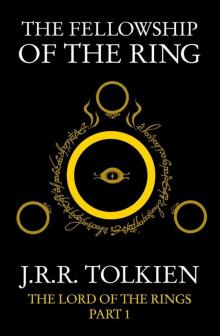 The Fellowship of the Ring
The Fellowship of the Ring The Hobbit
The Hobbit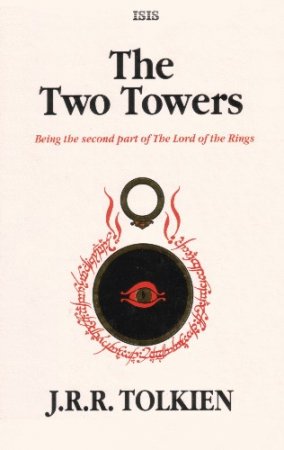 The Two Towers
The Two Towers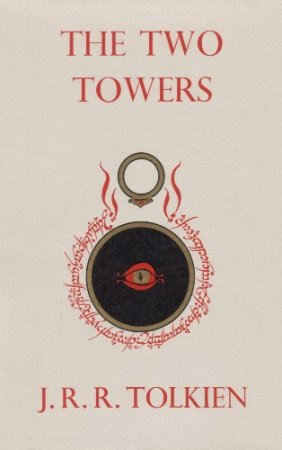 The Return of the King
The Return of the King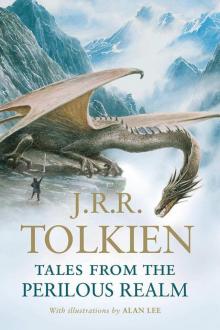 Tales From the Perilous Realm
Tales From the Perilous Realm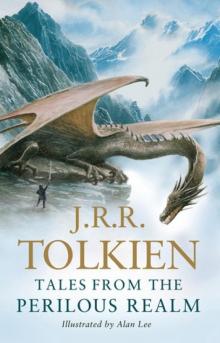 Leaf by Niggle
Leaf by Niggle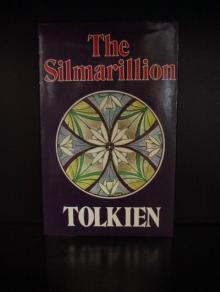 The Silmarillon
The Silmarillon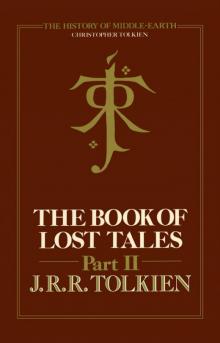 The Book of Lost Tales, Part Two
The Book of Lost Tales, Part Two The Book of Lost Tales, Part One
The Book of Lost Tales, Part One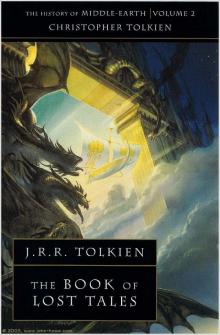 The Book of Lost Tales 2
The Book of Lost Tales 2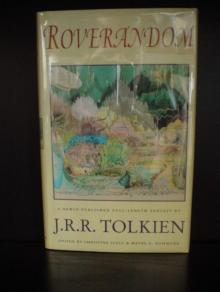 Roverandom
Roverandom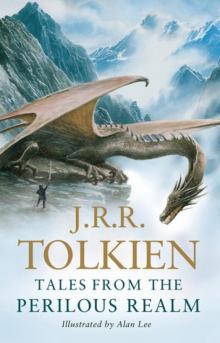 Smith of Wootton Major
Smith of Wootton Major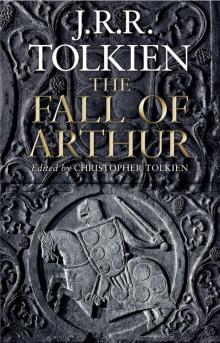 The Fall of Arthur
The Fall of Arthur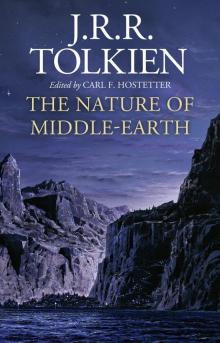 The Nature of Middle-earth
The Nature of Middle-earth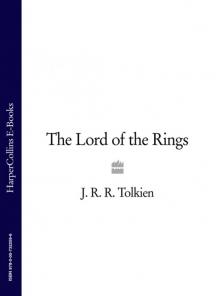 The Lord of the Rings: The Fellowship of the Ring, The Two Towers, The Return of the King
The Lord of the Rings: The Fellowship of the Ring, The Two Towers, The Return of the King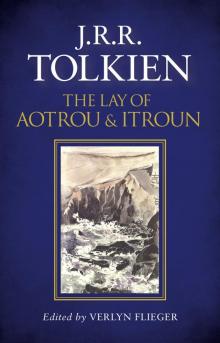 The Lay of Aotrou and Itroun
The Lay of Aotrou and Itroun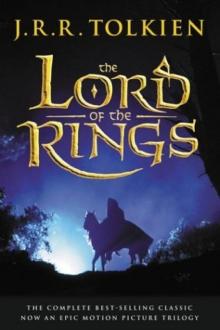 lord_rings.qxd
lord_rings.qxd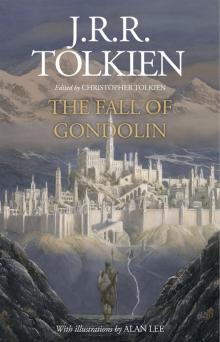 The Fall of Gondolin
The Fall of Gondolin The Book of Lost Tales, Part 1
The Book of Lost Tales, Part 1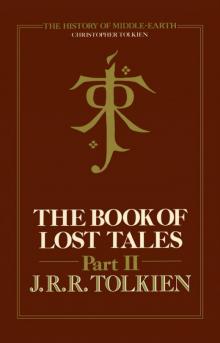 The Book of Lost Tales, Part 2
The Book of Lost Tales, Part 2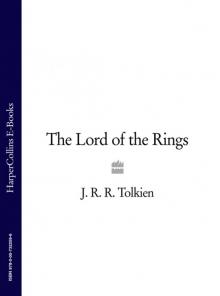 The Lord of the Rings
The Lord of the Rings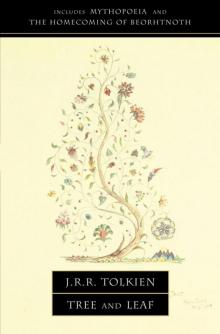 Tree and Leaf
Tree and Leaf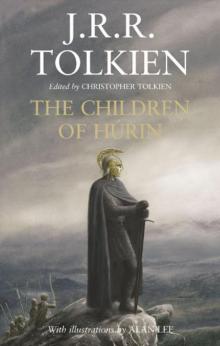 The Children of Húrin
The Children of Húrin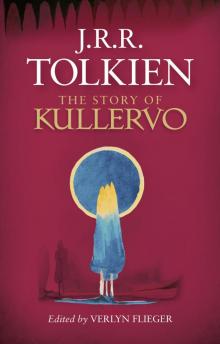 The Story of Kullervo
The Story of Kullervo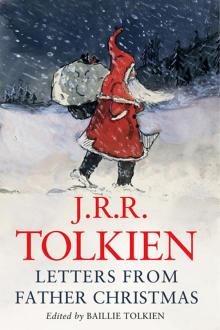 Letters From Father Christmas
Letters From Father Christmas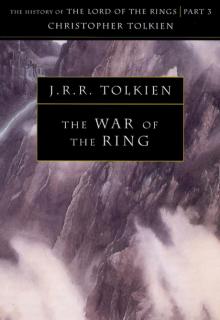 The History of Middle Earth: Volume 8 - The War of the Ring
The History of Middle Earth: Volume 8 - The War of the Ring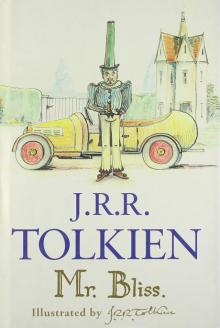 Mr. Bliss
Mr. Bliss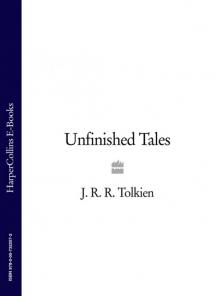 Unfinished Tales
Unfinished Tales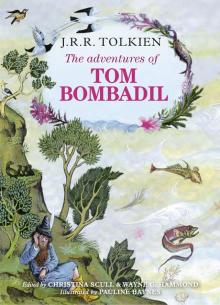 The Adventures of Tom Bombadil
The Adventures of Tom Bombadil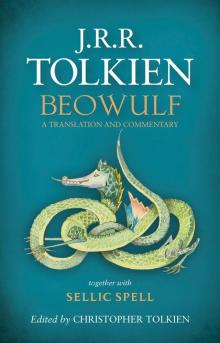 Beowulf: A Translation and Commentary, together with Sellic Spell
Beowulf: A Translation and Commentary, together with Sellic Spell The Silmarillion
The Silmarillion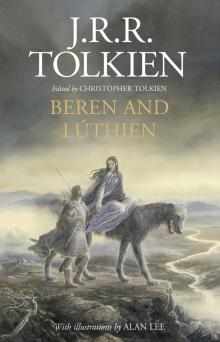 Beren and Lúthien
Beren and Lúthien